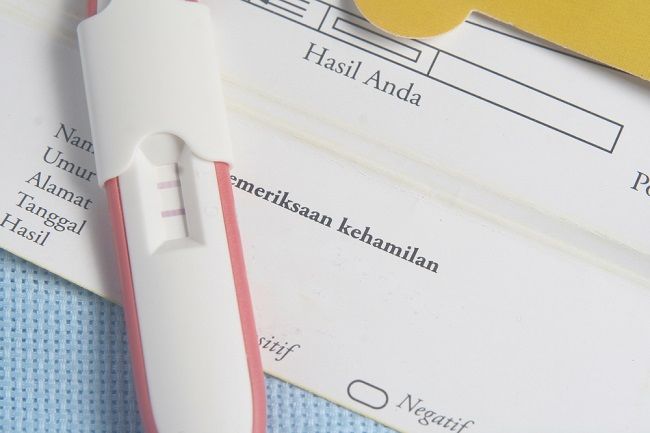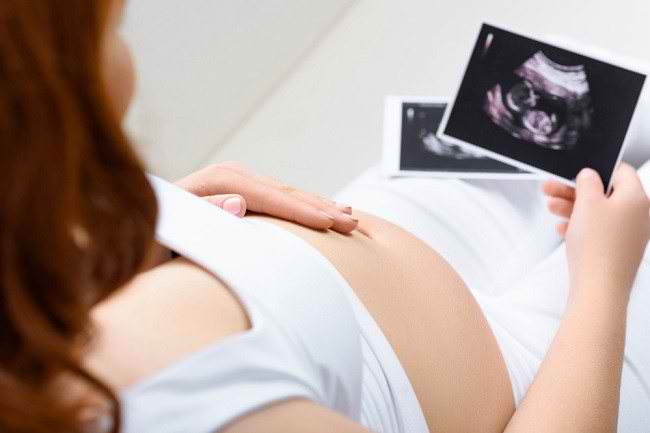Sperm examination is an examination procedure performed to analyze the quantity and quality of sperm in men. This procedure is also used to determine the level of male fertility.
Sperm are cells produced by the male reproductive organs. Sperm contains enzymes that function to soften the egg cell wall, so that sperm can enter the egg during the fertilization process. Abnormal sperm will find it difficult to reach and penetrate the egg, thereby inhibiting the fertilization process.
Sperm examination is carried out through a laboratory analysis of the semen samples that have been taken. This examination generally analyzes several things, including sperm count, structure or shape, movement, acidity (pH), volume, color, and viscosity of semen.
Sperm Check Indications
Sperm examination is generally done to identify several conditions, including:
- Male fertility rate.Sperm tests are carried out on men or partners suspected of having fertility problems. This test is generally performed on couples who have undergone a pregnancy program for 12 months, but do not get results.
- Vasectomy success. This examination is performed to ensure that there is no sperm contained in the semen in patients who have recently undergone a vasectomy.
- Diagnosing Klinefelter syndrome, is a genetic condition that occurs in men when they have an extra X-chromosome. This condition is characterized by infertility.
Before Sperm Check
There are several things that patients need to pay attention to and do before undergoing a sperm examination, including:
- Avoid ejaculation for 1-3 days before undergoing the examination.
- Avoid consuming alcohol, caffeine, and tobacco or tobacco products, for 2-5 days before undergoing the examination.
- Avoid taking drugs that can lower sperm count, such as cimetidine, and herbal products, such as echinacea and St. John's wort.
- Avoid using lubricants or other products that contain spermicidal ingredients.
- Do not perform a sperm test when you are sick or under stress, as the results may be inaccurate.
Sperm Examination Procedure
One way to collect sperm samples is through the masturbation process. Clinics or hospitals generally provide a special room for patients to take sperm samples. The steps for sperm retrieval are as follows:
- Clean hands and penis with soap and clean water, then dry.
- Open the lid of the container and make sure the sample container is clean, dry and sterile.
- When it reaches the stage of ejaculation, immediately position the sample container so that sperm can enter the container during ejaculation. Do not put spilled sperm in the container.
- After the sperm has been collected, immediately close the container tightly.
- Put the name, date and time of sampling on the container.
Two important things that patients need to remember are that sperm samples must be stored at body temperature. If the temperature is too warm or too cold, the test result will not be accurate. The second important thing is that the sperm sample must be immediately brought to the laboratory within 30-60 minutes after the sperm is collected. This action is done to get a good sperm sample and accurate test results.
If the patient has a fertility disorder that results in little or no sperm being released during ejaculation, the doctor may take a sperm sample through a surgical procedure, such asmicrosurgical epididymal sperm aspiration (MESA) or testicular sperm aspiration (TESA).
Sperm Examination Results
Sperm test results are usually received by the patient within 24 hours to 1 week, depending on the clinical laboratory or hospital where the patient underwent the examination. Sperm examination can show two results, namely normal and abnormal.
- Normal test results. Sperm test results are said to be normal if:
- Sperm count: 20 million to more than 200 million per milliliter.
- Sperm shape: >50% of sperm have normal shape.
- Sperm motility: >50% of sperm move normally 1 hour after ejaculation and the sperm motility scale is 3 or 4.
- Acidity (pH): 7.2-7.8.
- Volume: 1.5-5 mL.
- Sperm color: white to gray.
- Melting time: 15-30 minutes.
- Abnormal test results. Sperm test results are said to be abnormal if:
- Sperm count: <20 million per milliliter.
- Sperm shape: abnormalities found in the head, middle, or tail of the sperm.
- Sperm motility: <50% sperm does not move normally 1 hour after ejaculation and the sperm motility scale is 0, meaning the sperm is immobile.
- Acidity level (pH): 8 indicates the patient is at risk of infection.
- Volume: 5 mL indicates the sperm is too dilute.
- Sperm color: red or brown can indicate the presence of blood, whereas if the sperm is yellow it can indicate a risk of jaundice or drug side effects.
- Melting time: do not thaw within 15-30 minutes.
After Sperm Check
Abnormal sperm examination results do not necessarily indicate a disturbance in male fertility. Many factors can affect the quality and quantity of sperm, such as previous illnesses, stress during examinations, or occupational risks that are susceptible to radiation exposure. The doctor may advise the patient to go back for a repeat sperm test. If the results come back abnormal, the doctor will recommend the patient undergo additional examinations to detect disorders that may be experienced, such as:
- genetic test
- Hormone test
- Urine test (urinalysis) after ejaculation
- Antibody test
- Taking testicular tissue samples
The doctor will also recommend several steps that the patient can take to promote healthy sperm production, including:
- Eat healthy food. Eat more fruits and vegetables because they contain lots of antioxidants that can improve sperm health.
- Exercise regularly. Regular exercise can increase levels of antioxidants that protect sperm.
- Maintain ideal body weight. An increase in body mass index is often associated with a decrease in sperm count and motility.
- Manage stress. Stress can decrease sexual function and interfere with the hormones needed to produce sperm.
- Prevent sexually transmitted infections (STIs), as chlamydia and gonorrhea can affect a man's fertility. To prevent it, do safe sexual activity.
Sperm are also highly susceptible to various environmental factors, such as exposure to excessive heat or toxic chemicals. Therefore, there are several important things that can be done to maintain the patient's fertility level, including:
- Do not smoke.
- Limit consumption of alcoholic beverages.
- Consult your doctor before taking certain medications, such as tricyclic antidepressants, calcium antagonists, and muscle mass-building supplements (anabolic steroids).
- Avoid exposure to toxins, such as pesticides and lead. Use personal protective equipment if working in areas prone to chemical exposure.
Sperm Check Risks
Sperm testing is a safe screening procedure and generally does not cause side effects or risk of complications.










